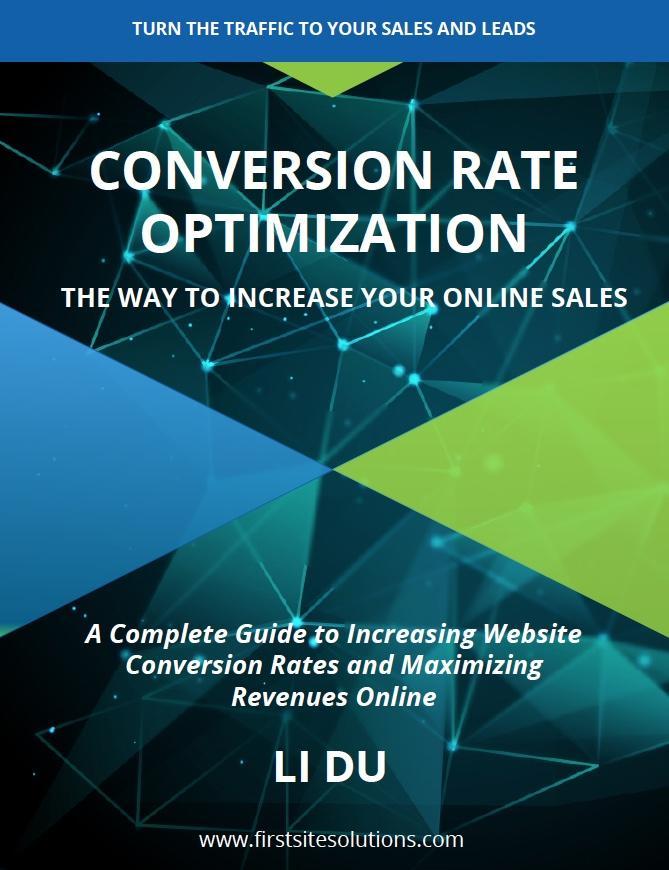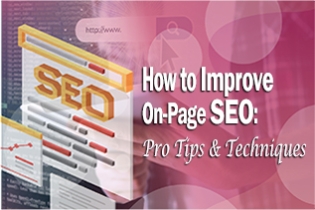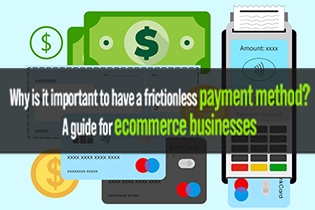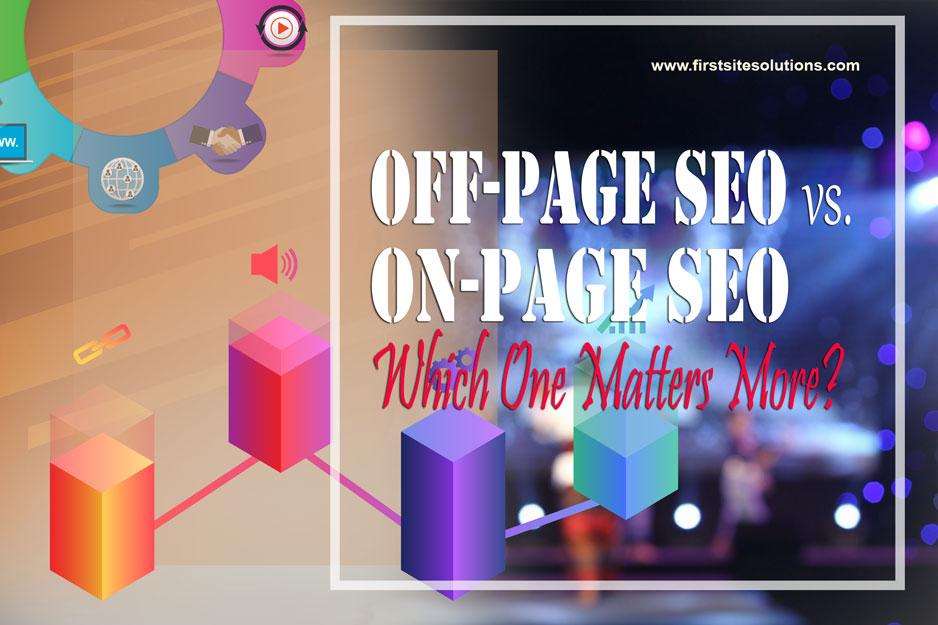
Both Off-Page SEO and On-Page SEO are crucial components that contribute towards the success of a Search Engine Optimized (SEO) campaign. It would be incorrect to claim that one matters more than the other. This is because Off-Page SEO and On-Page SEO are used in a complementary fashion to boost your search engine rankings.
That being said, both these categories are unique, and it is important to know the differences between the two and how they impact your website’s ranking in search results. Read on to find out how On-Page Search Engine Optimization differs from Off-Page Search Engine Optimization.
On-page Search Engine Optimization (SEO)
On-page Search Engine Optimization(SEO) deals with the pages on a site, in regards to both the backend structure of a website and the website’s content.
The primary goal of On-page optimization is to target specific keywords and incorporate them into your web pages so that the latter are ranked higher in search engine results. This drives targeted and organic traffic to your website. You can use popular keyword tools like Google AdWords to find targeted keywords, and these are usually inserted in the title tags, various phrases, and the meta description.
On-Page-SEO gives you full control over the elements that are critical to web pages ranking. Some of these elements, which lay the foundation for an On-page SEO, include title tags, phrases and keywords, meta description, anchor text and internal linking, XML sitemap, heading tags, the performance of your website and Search Engine Friendly(SEF) URLs.
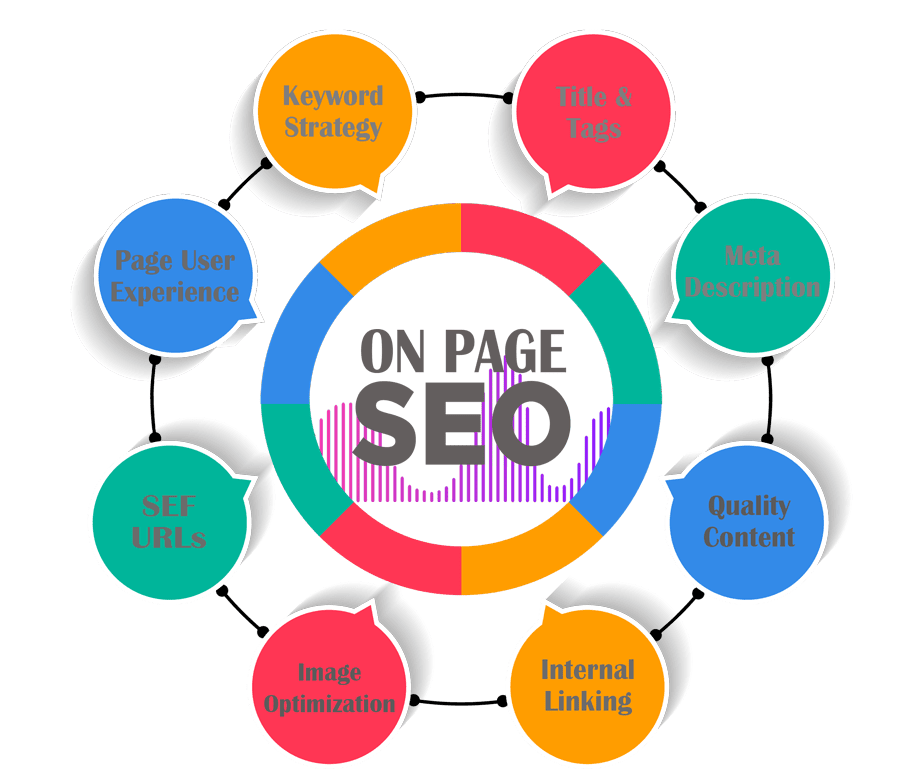
Off-page Search Engine Optimization (SEO)
While On-page SEO refers to the elements that you have control over on your website, Off-page SEO refers to the actions implemented outside your website. In contrast to On-Page SEO, you have considerably less control over these actions in Off-page SEO.
Off-page SEO comprises link building. This is achievable via various strategies such as outreach, guest blogging, and participating in online forums.
Off-page SEO also includes brand mentions and reviews. These components play a pivotal role in off-page Search Engine Optimized signals.
The quality and number of links that point to your website are one of the most important factors that are taken into account when a search engine like Google ranks a website. Google puts a lot of emphasis on backlinks for your website. These backlinks indicate that people outside your website find your content relevant and reliable enough to link to it.
Some of the common off-page Search Engine Optimization techniques include but are not limited to manual link building, guest posting, video marketing, social sharing, RSS Feeds, Forum Posting, and Comments & Reviews.
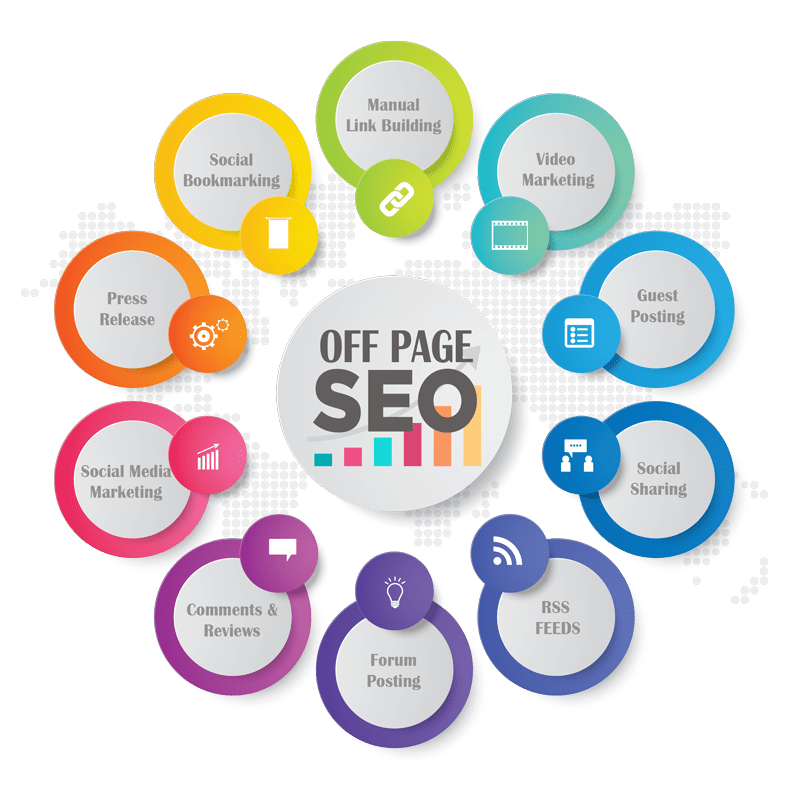
On-Page SEO vs Off-Page SEO: Which One Matters More?
As stated earlier, it would not be right to say that On-Page SEO is more important than Off-Page SEO or vice versa. On-page SEO is, in fact, the yin to Off-Page SEO's yang. Both of these forces are required to rank your website better.
However, there are a couple of instances when it is recommended to put more focus on one than the other. Examples of such instances include:
A Completely New and Fresh Domain
Whether you should focus on link building or content with a new domain is fiercely debated in SEO communities. Some argue that content takes precedence and that without valuable content, a new website would not feature anything worthwhile linking to. Others, however, firmly believe that link building should be the core agenda.
Lately, individuals have realized that they need to start giving more priority to compiling valuable content for their new websites. It is common knowledge that the market has become very saturated nowadays, so your content needs to stand out in terms of quality as well as quantity. Content is indeed the crux of every thriving website that draws a lot of traffic. The success of your website is contingent on the content that you put up. Hence, in the case of a new domain, it is advised to start with On-Page Search Engine Optimization and work on your content first.
An Old Domain Possessing an Active Link Profile
A website that has been up and running for a long time has grown and developed organically. It has managed to gather a great number of backlinks ever since it was put up online. However, the content on its web pages might be outdated and not optimized.
These types of websites usually have several on-page SEO and technical issues that run the gamut from non-search engine friendly URLs to outmoded keyword research and duplicate pages.
In this scenario, it is best to focus your time and resources on on-page optimization. By optimizing outdated web content, there is a strong likelihood that your Search Engine Optimized rankings will take a hike.
A website with Good Content but Lacking in Distribution Strategy and Backlinks
Just getting the best content on your website and waiting for it to gain traction is futile. You might have noticed that there are numerous blogs featuring rich content put up on the internet that nobody actually reads. Why do you think that happens?
Your content, regardless of its quality, would not garner the attention and popularity it deserves if you have not put a distribution strategy in place.
In this scenario, the best course of action would be to choose your best articles and pieces and put an extensive outreach and distribution strategy in place. An effective distribution strategy comprises sponsoring web content on other sites, running a paid social media campaign, and reaching out to influencers in your particular niche.
There are many options available on how to efficiently distribute your web content. This should help you gather sufficient backlinks so that you can get started.
Bottom Line
To summarize, by and large, Off-Page SEO and On-Page SEO are the two sides of the same coin. They have their important roles to play in the domain of Search Engine Optimization. Although it is recommended in certain instances (such as those listed above) to prioritize one over the other, both Off-Page SEO and On-Page SEO are equally vital factors that contribute towards boosting your website's ranking in search engine results.


